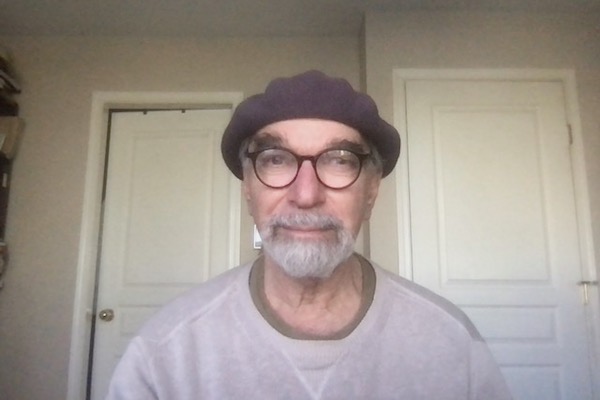Zelik Segal teaches an ongoing, free class in Nonviolent Communication. (photo from Zelik Segal)
We’ve all had an experience in which someone is short-tempered with us for no apparent reason, or doesn’t respond to us as we would like. We have a choice in that moment to react in kind or to pause, understanding that they may be having a bad day, or are dealing with chronic pain, or any number of things that have little or nothing to do with us. In situations like these, something called Nonviolent Communication (NVC) might come in handy.
In a nutshell, NVC teaches how to observe a conflict with objectivity, in place of subjective evaluations of right and wrong or appropriate and inappropriate. It also teaches how to sort out your own feelings and understand what needs of yours are in play, then how to determine what action might fulfil your needs in a conflict without taking away from the needs of the other person or people.
Want to experiment with that process? Zelik Segal teaches an ongoing, free class in NVC in Vancouver that helps people who are experiencing conflict and are ready to address it. It could be a marital problem or an ongoing argument with a friend or family member.
Segal took his first course in NVC in 2012 and has been facilitating and practising for the past six years; he is working on his certification. Segal began studying NVC after he retired from 18 years as a bus driver with Coast Mountain Bus Company. Prior to that, he worked as Lower Mainland regional coordinator for the B.C. Head Injury Program, under the ministry of health.
“When coming into a group to teach NVC, I also experience learning together and creating community that feeds my soul,” Segal told the Independent. “And having the good fortune to have discovered this jewel of living a more rewarding life, I like to share my good fortune with anyone else willing to learn.”
Segal calls himself an “empathy coach.” As such, he sometimes helps NVC students unravel difficult situations in their lives.
“Teaching NVC is the most immediate and direct way I can fulfil the talmudic statement from Rabbi Tarfon, who said, ‘You are not responsible to complete the task (of repair, tikkun olam), nor are you free from doing your part.’”
Segal recognizes that NVC is not always effective in resolving conflict and that it can take a lot of patience to sort through complex situations. He told the Independent that it did, however, change his life.
“While my connections to people and activities have remained the same as they were before I began to practise NVC, the way I connect and experience these connections are significantly different and far more satisfying,” he said. “I have learned to apply my learning to my marriage, to my employment as a bus driver prior to my retirement, to my retirement, to family and to my own self.”
Psychologist Marshall Rosenberg developed NVC in the 1970s. In part, it was his reaction to the bullying he went through in school because of his Jewish surname. In his book Nonviolent Communication: The Language of Life, he states that bullying is a “tragic expression of unmet needs.”
Segal further explained that Rosenberg’s nine categories of needs are safety, sustenance, love, empathy, community, creativity, recreation, meaning and autonomy.
Rosenberg became famous for creating dialogue between people around the world who were involved in violent conflicts, including Israelis and Palestinians. Trainers in NVC today are continuing his work.
“While NVC teaches the use of compassionate understanding to achieve resolution of conflict, it supports the use of force in situations where there is a threat to life, where the other party is unwilling or unable to enter into conversation and presents a threat,” said Segal.
Rosenberg suggested that, in times of conflict, people respond by defending themselves, attacking the other or withdrawing from the situation, sometimes even experiencing complete collapse, explained Segal.
“Learning that emotions are rooted in previous learning and part of a complex, unconscious process in the brain and directly rooted in the degree to which needs are fulfilled, one can then respond with curiosity and reflection in place of old patterns of reaction,” he said.
Segal sees NVC as a way to practise Judaism’s emphasis on social justice and “apply many of the maxims expressed by the rabbis in Pirkei Avot [Ethics of Our Fathers],” he said.
If you have questions about NVC or are interested in Segal’s classes, you can contact him at [email protected]. Rosenberg’s books are available online and the Centre for Nonviolent Communication, which he founded, offers international training and certifies individuals as trainers: cnvc.org.
“NVC is about connecting with ourselves and others from the heart,” it says on the centre’s website. “It’s about seeing the humanity in all of us. It’s about recognizing our commonalities and differences and finding ways to make life wonderful for all of us.”
Cassandra Freeman is a freelance writer living in Vancouver.

